March piano recital: a musical itinerary
By
David YangListening to this program is to be an intrepid explorer of feelings in music.


With the Concours de Genève Viola Competition officially over, I asked people if they had any questions for Alessandra (who will be playing on the Winter Baroque concert) about her experience. She made semi-finals and was awarded a special chamber music prize by the jury in Switzerland. Here is some of what came in.
David Yang, Artistic Director
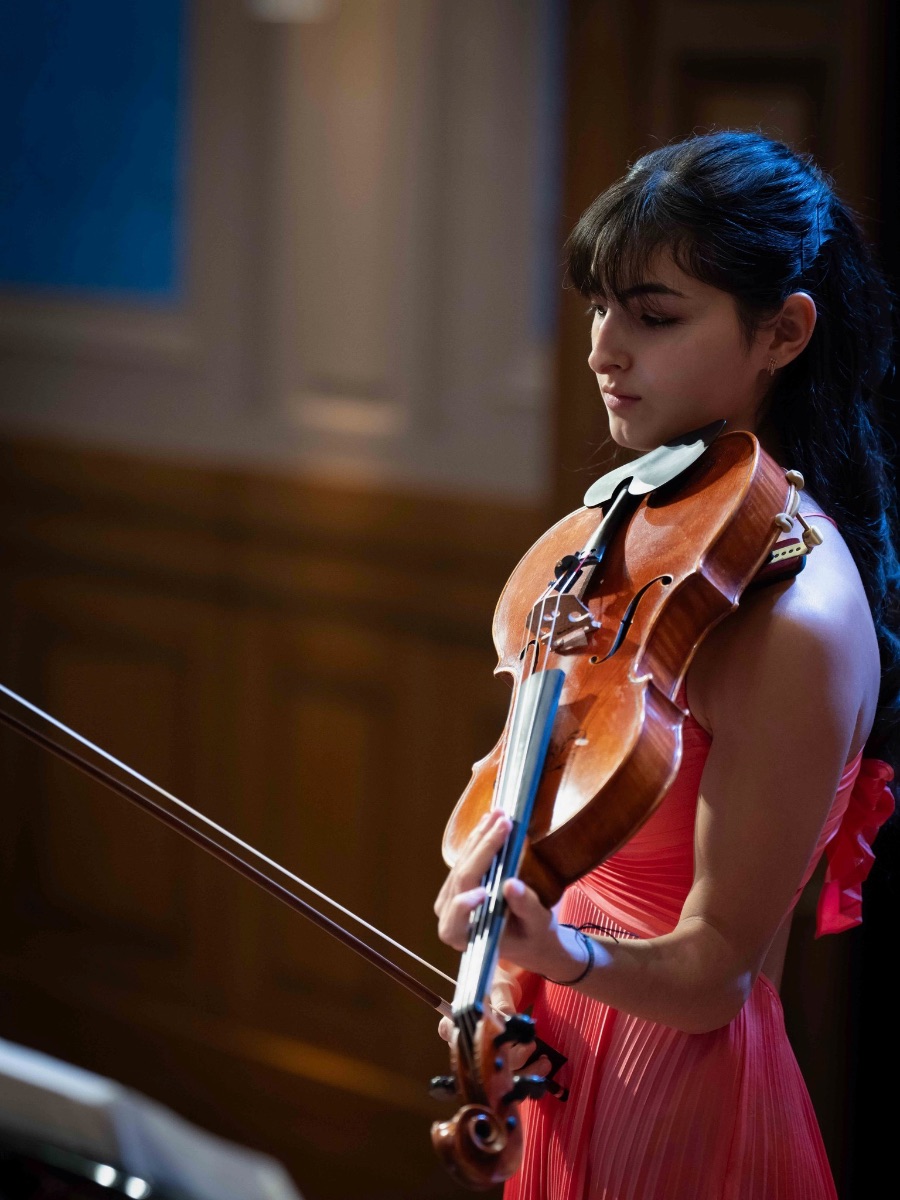
What have you learned from participating in the competition in Geneva?
I always assumed participating in competitions would be stressful, and I wondered why anyone would subject themselves to being judged in such a harsh environment when art is ultimately subjective and personal. Before the competition had begun, I remember speaking to a friend of mine, a seasoned competition participant. He told me competitions can in fact be opportunities for immense growth, offering deadlines with high visibility outcomes and thus a lot of motivation.
He was correct. So much has shifted for the better through the mental and physical preparation of Geneva. The way I practice is more methodical and the baseline number of hours is now significantly higher than it was. My posture, and thus my stage presence and sound production, have improved. I have more trust that my fingers and body will be able to produce the sound that I want to hear.
While competitions are scary, we’re the only ones putting pressure on ourselves to do well. If we approach these situations with eagerness to learn, it shifts the atmosphere from nervous to exciting.
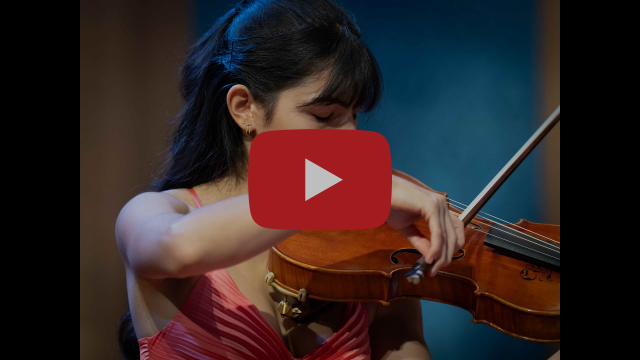
Did working so hard to prepare for this have an impact on your playing?
My playing has definitely developed both during the preparation and actual presentation at the competition. My consistency on the instrument is higher and my use of the bow as an artistic tool has grown. Musically, I have more confidence in my use of timing, space, and colors to tell the story that I want. As a performer, the concerts in Geneva offered excellent opportunities to work on stage presence and presentation. There is always more room to grow, though; this road never ends. :)
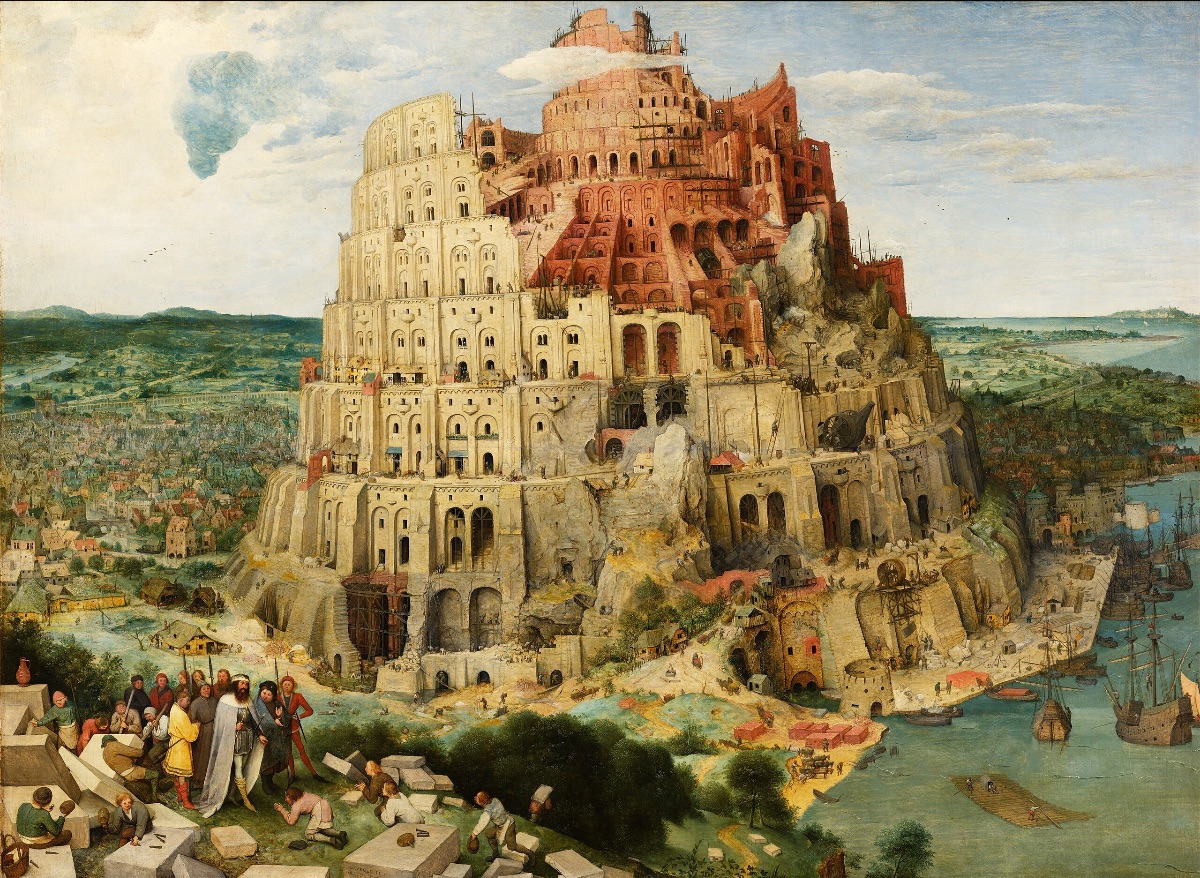
There is a good quote I found online about setting goals. It talks about “the power of doing hard things” and of “intentionally chasing the uncomfortable, and setting wild, audacious goals in an effort to redefine what we think is possible.” Does that apply here at all? What was the point of going through this experience? I imagine, in some ways, it was just kind of a fun adventure.
I love this quote. Pushing ourselves reveals that our “limits” are just perceptions. I have always loved doing “sprints.” Two summers in high school I skipped a year in math, and I love learning skills in short periods of time as a challenge. This felt different only in scale, but it was again a “sprint,” seven weeks of preparation to engage with the edges of what I thought was possible in my playing.
I spent many nights staying up until 2 am to finish my practicing. I dropped all nonessential classes in school and purposefully didn’t engage with material unrelated to the competition. It was difficult – at one point in October, I pushed myself too hard and had a bit of a crash – but also incredibly rewarding when I have such a clear goal to work towards.
In a theology class, I once heard that the reason God destroyed the Tower of Babel was not that he was vengeful but because he understood that working towards a goal is what makes us human. By making more work, he was preserving our humanity. I’ve learned over the past few years that what makes me happy is being proud of my work, not the outcome. That was a big mindset goal going into this competition for me, knowing that of course the “outcome” is so subjective and judged (literally).
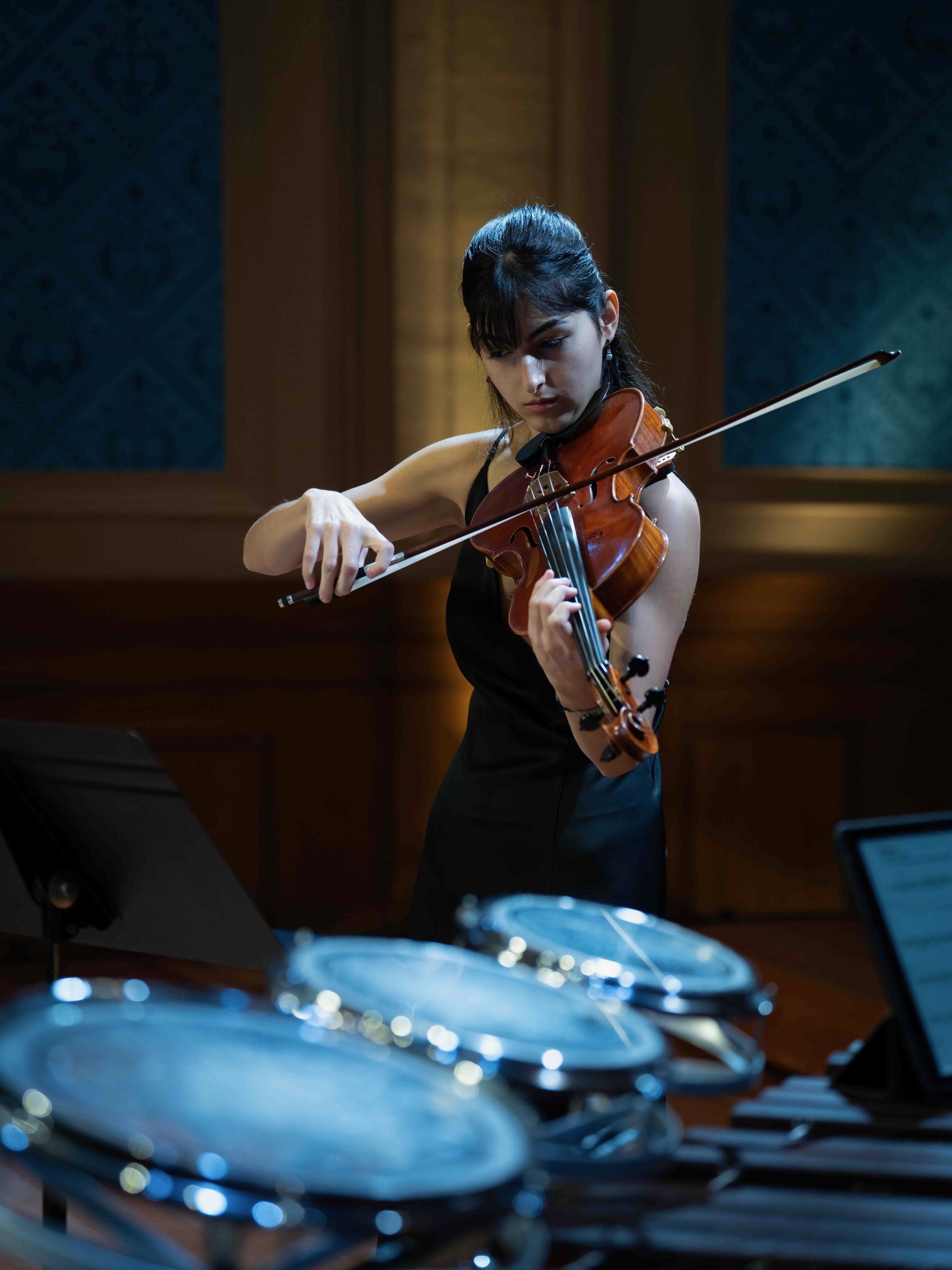
When I watch a musician I sometimes wonder if they are as immersed in what they are doing as it looks like - if they are experiencing a "flow state” where they are so absorbed and focused that they lose self-awareness and track of time — or, quite the opposite, if they are actually thinking about what they are doing and what’s coming next. How do you feel when you play?
When you’re “in the zone,” it feels like time is expanding. You are in control of every millisecond and at the same time riding the wave of the music. I definitely sometimes have unhelpful thoughts like “I wonder what (fill in name) is thinking,” or “hm, that was a bit out of tune.” I’m not sure if that means I’m not fully engaged in the music, or if my brain is constantly switching between thinking and feeling. It’s something I’ve been exploring as I work on focus in performances.

Tell me more about this chamber music prize: what it was for and why do you feel you received it?
When the director of the competition gathered us to announce the finalists, he started off by saying that there was a contestant whose chamber performance was so compelling to the judges that they couldn’t leave it unrecognized. The Chamber Music Prize, as was later defined, “recognizes the best performance in the chamber music round.” I am honored to have received this award, especially since I hold chamber music and collaboration so near to my heart.
You look like you were having fun. Is that true, or was it just terrifying?
With any performance, the anticipation is the worst. Once you’re on stage, you’re thankful to be playing and presenting the work that has gone into the piece. Playing in Geneva was no different. The anticipation leading up to each concert was terrifying: you don’t know which parts are most important to practice or what to focus on while you’re playing to get the best performance. But once you’re on stage, you can either sit in worry and nervous anticipation or fill every moment to its fullest.
While my brain was no doubt running 100 mph during these performances, I tried to use that to my advantage and direct that energy towards the music and expression. Once you realize that you’re on stage, playing music with amazing colleagues and an audience that loves music makes it not scary anymore but just incredibly fulfilling and fun.
What did you think of the other contestants? It seemed like there was a really good general vibe and people were friends. While you seemed genuinely happy for the others, did you have mixed feelings when it was announced that you did not make the final?
Though the competition schedule was very dense and there wasn’t much time to be social, the environment was really friendly and most of us knew one another. I was nervous when I first arrived but was also excited to see my friends again. I knew that whoever made it to finals, it would be a well-deserved prize.
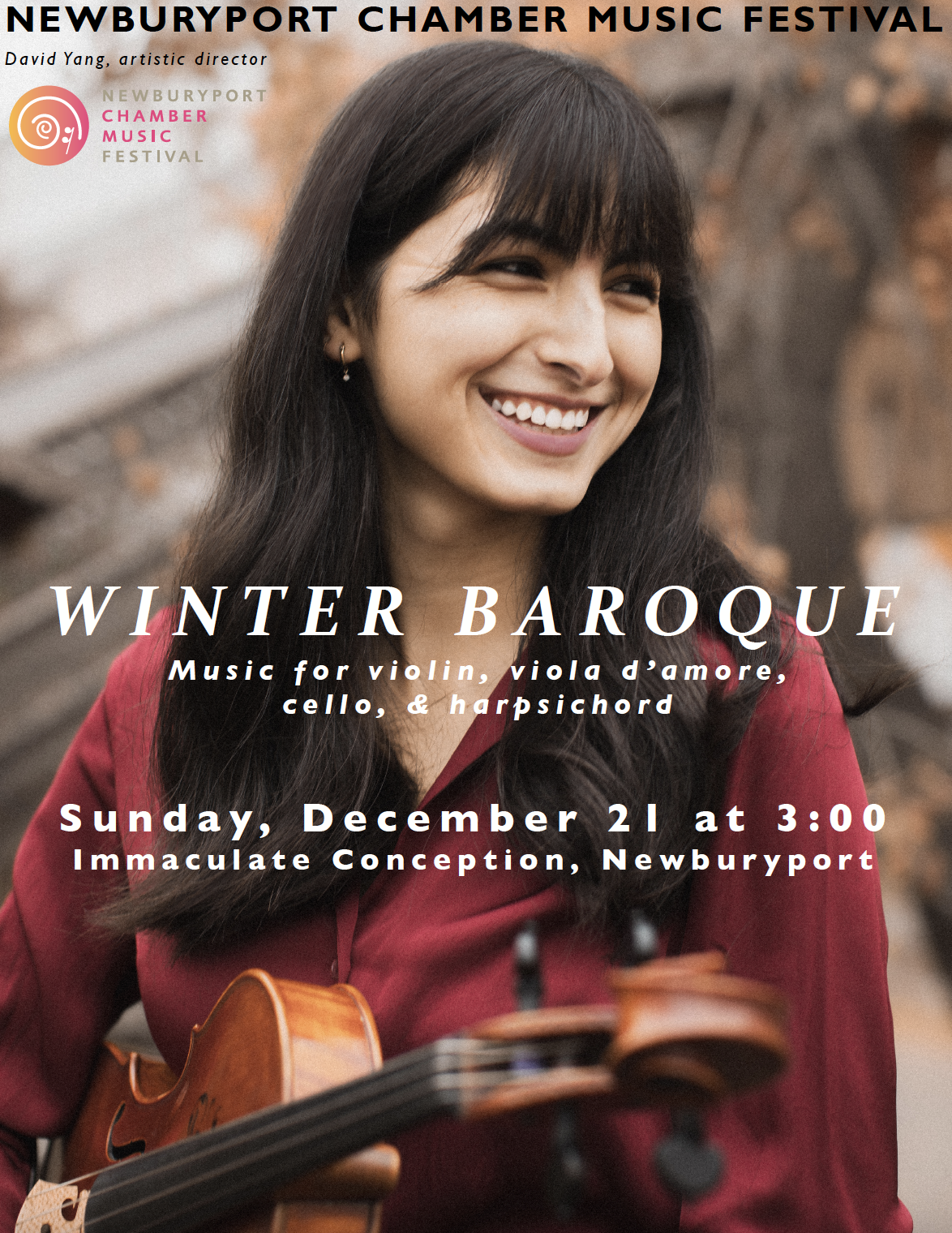
By
David YangListening to this program is to be an intrepid explorer of feelings in music.
By
David YangI asked Michael if he knew someone local I could talk to about starting my one in town. That’s how I wound up on the phone with Jane.
By
David YangThe winter holidays – Christmas decorations, holiday parties, takeout Chinese food, and a baroque world premiere in Newburyport.
NCMF relies on the assistance of corporations, foundations, and most importantly, you.
Make a GiftVolunteer